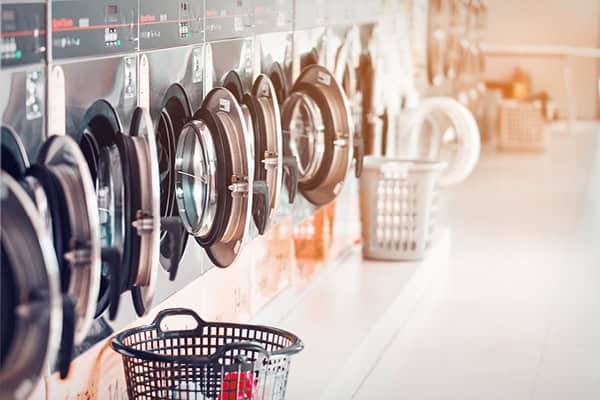A pair of clean pants and a shirt is such a struggle that it has become one of the main contributors to chronic absenteeism at 112th St. S.T.E.A.M. Academy in Watts, CA says Principle Jose Hernandez in an article in The 74.
Hernandez and his staff have been helping families work through this issue for years. Hernandez once helped a family without a working washer by providing clothing for their child. He has also given families money for their needs, including for laundry expenses.
In May, the school was one of 20 that received a new washing machine and dryer from the Rams NFL football team and the Think Watts Foundation; along with $2 million in clothing to schools serving low-income students. Earlier this year, LAUSD also announced a mobile laundry service for homeless students as part of the district’s attempt to combat chronic absenteeism.
The school demographics are approximately 69% Latino students and about 31% African American students. Over 95% come from low socioeconomic backgrounds. The school constantly battles chronic absenteeism and strives to foster empathy among students, ensuring they support and do not bully one another about things like dirty, smelly clothes.
Students and children can be brutally honest, and when kids come with dirty or smelly clothes, the other kids will point it out to them. This impacts students’ self-confidence, making school an environment where kids don’t want to be.
As kids move up the grades, this becomes more significant. First graders when told they’re stinky or something insulting, usually just blow it off and keep playing. But a fourth grader or a fifth grader who hears that their clothes are stinky or soiled is going to think about it. At that age, they hold what their peers say in very high regard.
“We try to ensure that the children have adequate clothing for school to build up their confidence. Second, we talk to the kids who are around them or who might be making them feel uncomfortable, encouraging them to be more empathetic towards their classmates to prevent them from hurting others’ feelings. Maybe they don’t mean to, but it’s important that they don’t continue to hurt these kids’ feelings,” says Hernandez.
“We have some donated items here at the school, and we often make sure to change them out for the clothing they are wearing. They take both the clean clothes we’ve given them and their old clothes back home. Also, we reach out to the parents to find out the actual issue, such as why ‘little Jose’ is coming to school in soiled clothing. We try to get to the root of the problem. Sometimes we hear stories like, ‘We don’t have a washer and dryer right now,’ or ‘We’re not getting the check, so finances are tight and we don’t have money for the laundromat.’
“Access will be limited to the new laundry service because we can’t have everybody come in and use it. With wear and tear, things will eventually break down. However, we will have a system in place. It will be appointment-only and managed through our Parent Center, which serves as our community liaison center.
“Access won’t be open to everyone; there needs to be a structured system. I will also incorporate teacher input since they know the students best and work closely with them daily.
“Currently, service is completely free. We have enough detergent for several months and are conducting a recycling program at the school site. The funds generated from recycling will be used to purchase more detergent and support the Wellness Center’s resources for the washer and dryer.”
The 74





